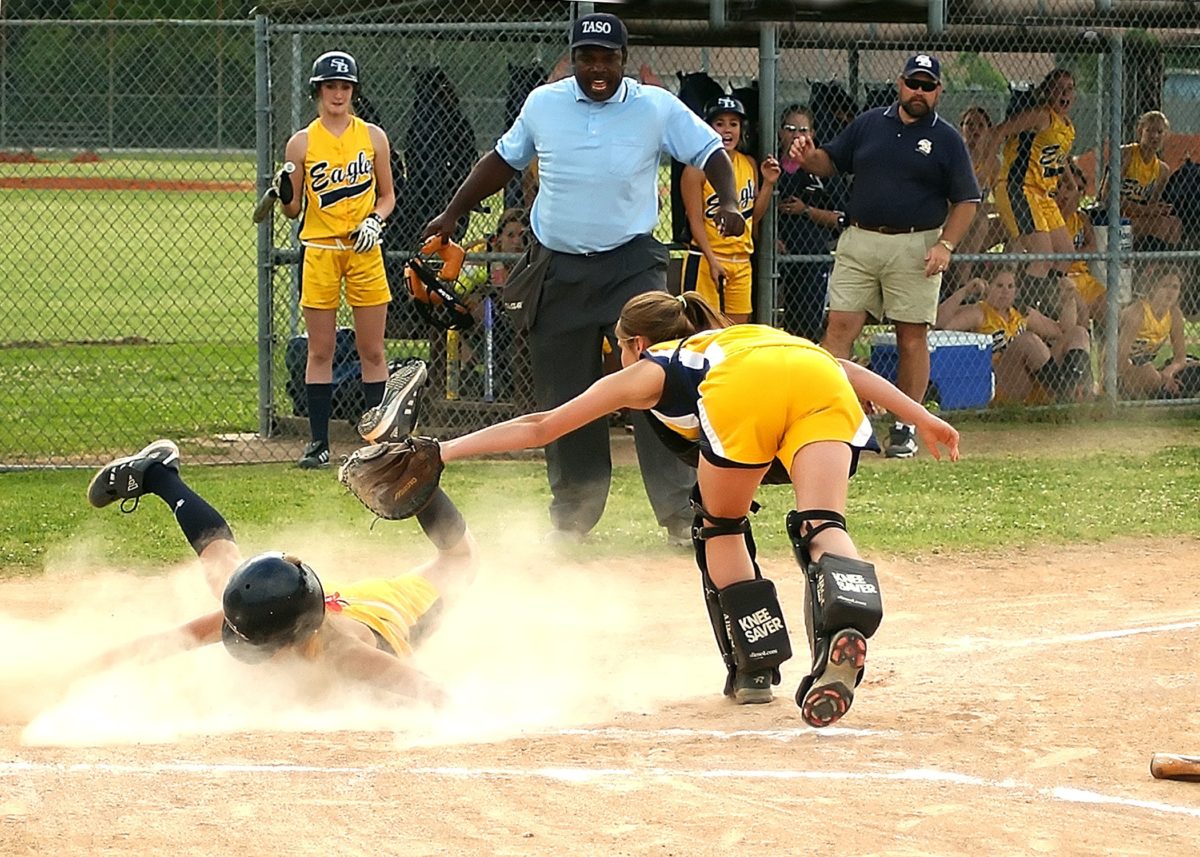With Thanksgiving approaching, you’re either in your competitive season or preparing for it in the season and spring. Hopefully, you’ve spent the off season working out in the gym, putting time in on the field, court, course, track, hill, or whatever venue you train in for your sport, and hopefully working on your mental training as well. Your goal when you enter your competitive season is to feel ready to perform your best consistently and when it counts most.
Those of you who regularly read my posts know that my goal for you is to achieve Prime Sport, which I define as performing consistently well under the most challenging conditions. The area that will probably make the biggest difference in whether you perform your best or crash and burn occurs before you even enter the field of play, namely, your attitude toward your sport. Your mindset will impact every psychological contributor to your sport including your motivation, confidence, intensity, focus, and emotions. A healthy attitude will set you up for a psychology and physiology that will allow your best competitive performances to emerge. An unhealthy attitude, by contrast, will only set you up for failure.
A healthy attitude can be summed up in what I call the “6 Ps for Sports Success.”
Passion
Sports are certainly fun, exciting, and inspiring. But pursuing your sports goals isn’t always easy. In fact, it can be darned hard. What it takes to finding your own personal greatness as an athlete can be tiring, painful, boring, and frustrating. That’s where passion comes in. Passion for me is an internal furnace that burns with your love of sports and your desire to be the best athlete you can be. If you can tap into that passion, through wins and the losses, you will stay positive, motivated, and excited from your first competition of the season to your last and, though I can’t guarantee that your passion will propel you fully to achieve your goals, I’m confident that good things will happen for you.
Perspective
It’s easy, as the competitive season approaches, to lose perspective. When I talk about perspective I mean the importance you place on your sport. You may think: “This is a huge year for me. I’ve worked so hard. If I don’t do well, it will kill me!! I MUST do well!” Sure, you really want to do well, but ‘MUST’ do well? The reality is that, if you don’t have a good season, you will be disappointed, but you will certainly survive and be fine in the long run. If you can embrace competition this attitude you remove the expectations and pressure and have a much better chance of accomplishing those goals that are so important to you.
Think of it this way. Let’s say that before your competition, someone comes up to you, shows you a gun, and tells you that if you don’t perform well, he will be in the finish area and will shoot you. Would you be nervous? Yes, terrified, in fact. Would you be able to perform well? Definitely not! Of course, there will be no one at the finish line with a gun to shoot you physically dead, but, when you lose perspective and feel that your life (not your physical life, but your ego life) is on the line, then the same feelings of threat and fear arise. And there is little chance of your being confident, relaxed, or focused enough to perform your best.
If you look too closely at the upcoming season and the big competitions that lie ahead, it’s easy to think that they are life or death. But if you can step back and put the season in a long-term perspective, namely, the season is just one step in a journey toward your long-term goals, they won’t seem quite so important. The result? You’ll be psychologically and emotionally prepared to perform your best.
Process
One of the most common problems that occurs in athletes as the competition season, and big competitions, approach is a shift in their focus away from the process and onto outcomes. Let me explain. A process focus involves paying attention to those things that help you perform your fastest, for example, technique, tactics, and aggressiveness. In contrast, outcome focus involves focusing on the possible results of a competition: winning, losing, points, rankings, whether you will qualify for the next level of competitions, or who you might beat or lose to. Let me make this very clear: An outcome focus is the kiss of death in sports. Here’s why.
Many people believe that focusing on the outcome will increase the chances of that outcome occurring, but the opposite is actually true. When does the outcome of a competition occur? After the competition is over, of course. And if you’re focusing on the end, what are you not focusing on? Well, the process, obviously. Here’s the irony. By focusing on the process rather than the outcome, you have a much better chance of performing your best because you are paying attention to things that will help you perform well. And, if you perform well, you’re more likely to achieve the results you wanted in the first place.
Also, why do you get nervous before big competitions? Because you’re afraid of the outcome, more specifically, you’re afraid of failure. So by focusing on the outcome, you’re more likely to feel anxious (a little anxiety is good, but too much is really bad) and less likely to perform well and achieve the result you want. In contrast, if you focus on the process, you won’t have a fear of failure, you’ll stay relaxed, and you’re more likely to perform your best, the result of which is the outcome you wanted in the first place.
Present
Another shift that can occur at the start of a competitive season or as big competitions near is from the present—what you need to do to perform well now—to either a past focus—onto results you had in the past—or a future focus—onto the results you may or may not get in upcoming competitive season.
Let’s start with a past focus. There’s a saying, “You can’t change the past, but you can ruin a perfectly good future by worrying about it.” The reality is that you can’t change the past, so there’s no point in even thinking about it (except to learn from your mistakes so you don’t repeat them). If something bad happened in the past, be disappointed, then let it go. If something good happened, revel in it, then let it go. Looking back will interfere with your present.
Now about the future. Thinking about the future also does you no good. It can cause doubt and worry because it often triggers a fear of failure. A future focus can create anxiety because it makes you think about expectations that you might feel from your parents or coaches. Mostly basically, if you’re focusing on the future, you’re not focusing on your performing in here and now.
If you want to control the future, the only way to do so is to control the present. This means directing your focus on what you need to do to perform your best right now.
Positive
Perhaps the worst thing that happens to many young athletes before an upcoming season or important competitions is they start to go negative. The expectations and pressure that you can feel before a season or a big event can cause your confidence, which may have been high from all of your off-season preparations, to plummet as you focus on all of the bad things that can happen this season (mixed in with a bunch of “what ifs”). You may go from being your best ally to your worst enemy. What are the chances of good things happening this season with this “dark” mindset? Let me answer that question for you: pretty darned low.
Your only chance to achieve your sports goals this season is to stay positive and remain your best ally. What this means is saying positive things that will support your effort: “I can do this. I’m going to attack. I’m leaving all out there.” Just make sure that you remain your best ally and you stay on your own side, particularly when you’re faced with those inevitable down periods that are a normal part of sports.
Progress
Sports are unforgiving in how it judges athletes. And we also live in a world where it is difficult not to compare yourself to other athletes. But when you focus on them, for example, think about how they are performing, how they will do in competitions, and whether you will beat them, they win because you’re focusing on them, not yourself and what you need to do to perform your best.
The fact is that until you get into your late teens results really don’t matter. Though some athletes who have early success go on to be superstars, many who made it to the top weren’t exceptional early in their athletic careers. It just doesn’t matter how you stack up against your competitors when you’re young. And worrying about them, as I just indicated, does you absolutely no good.
The only thing you should really focus on is yourself and the progress you’re making toward your goals. You will always have setbacks and plateaus, but the key is to see that you are heading in the right direction. Are you improving your technique and tactics? Are you performing better in competitions? As long as you are focused on improving and moving toward your goals, you will continue to get better and everyone else, who you have no control over, will take care of themselves.
So, if you really want to perform your best, remember the 6 Ps and you can be pretty confident that you’ll have the right attitude that will set you up for success this season.
Want to make get your mind in the best shape of your athletic life? Take a look at my online mental training courses for athletes, coaches, and parents. Team discounts are available and coaches can attend for FREE with an enrollment of 15 athletes from a team.







